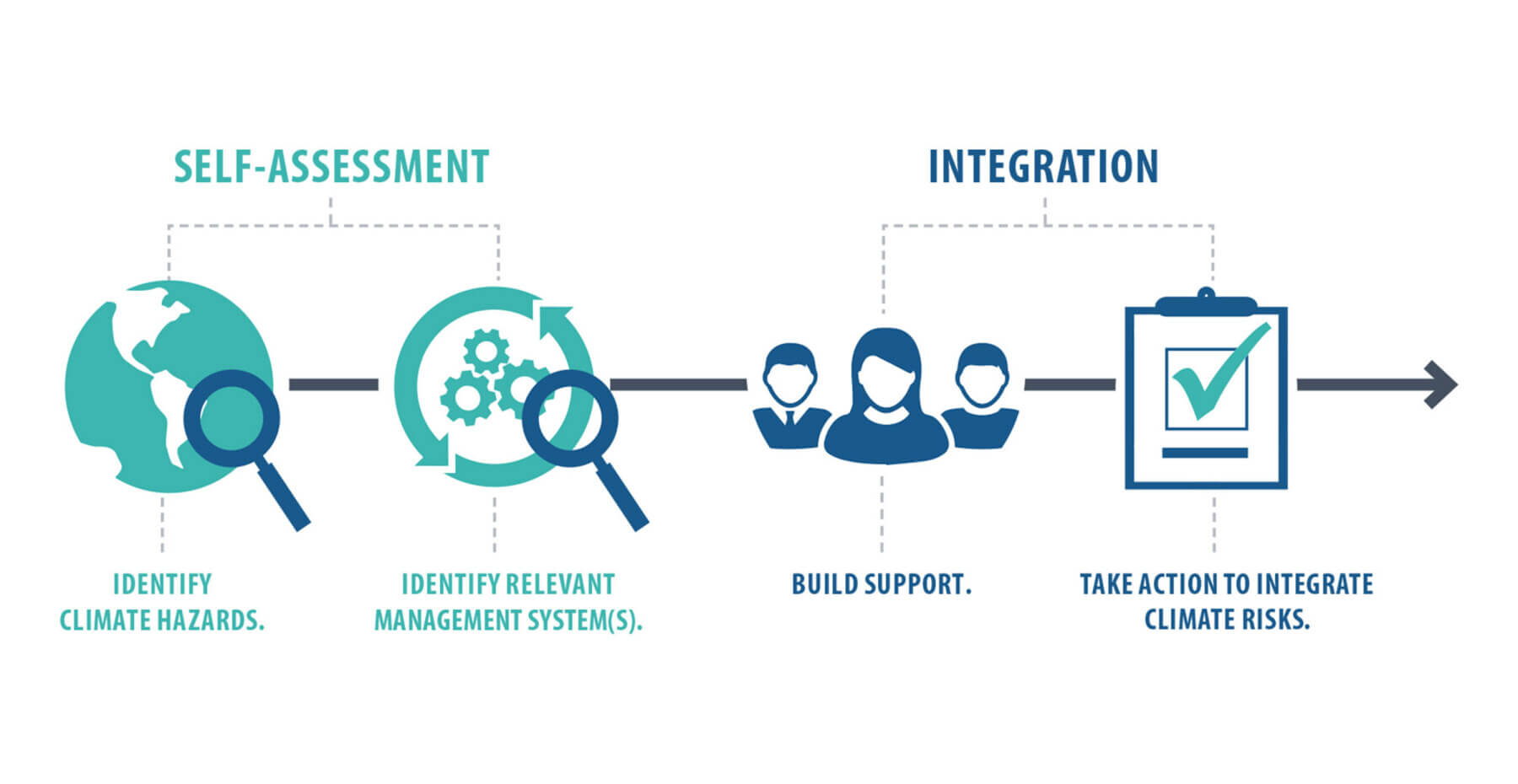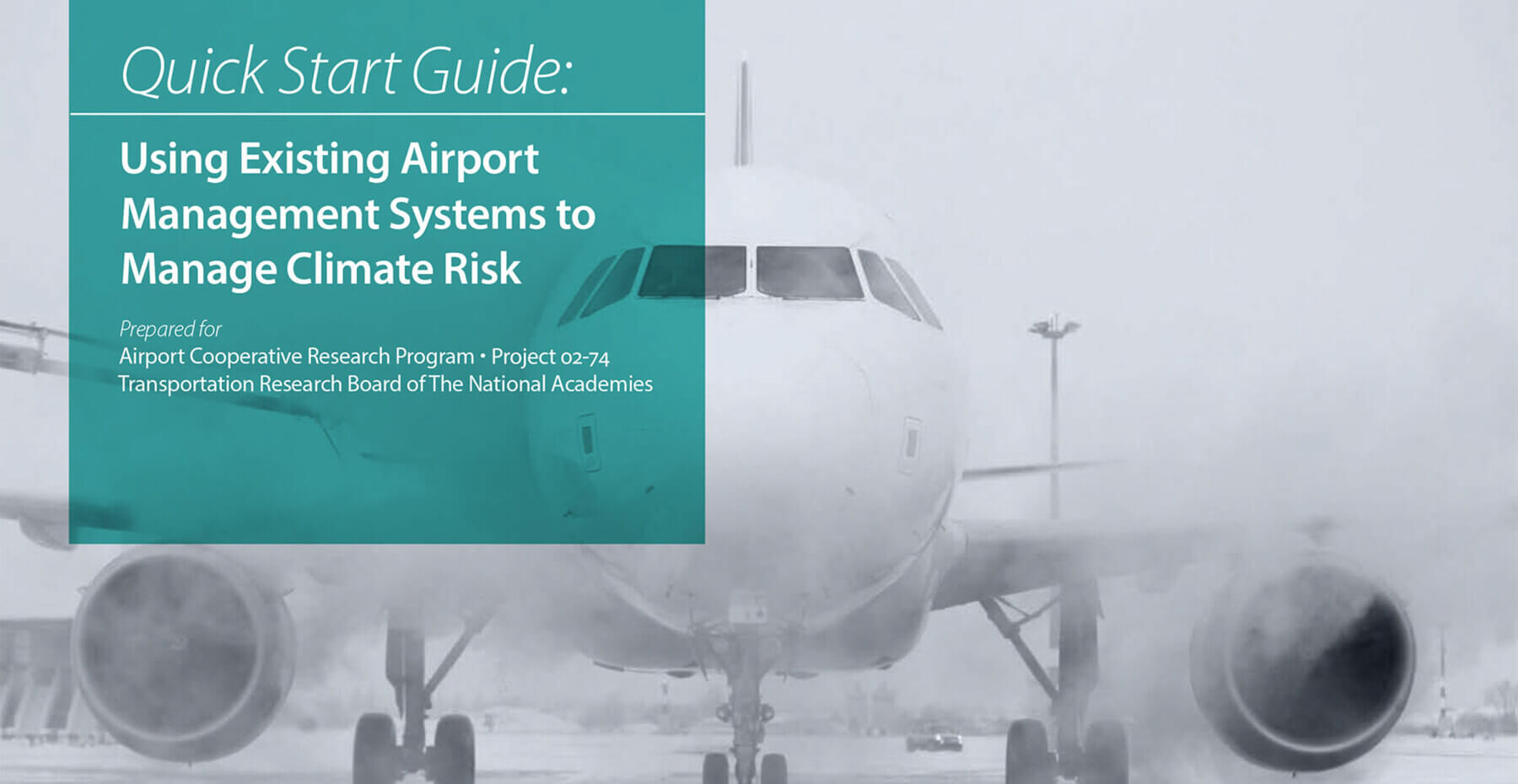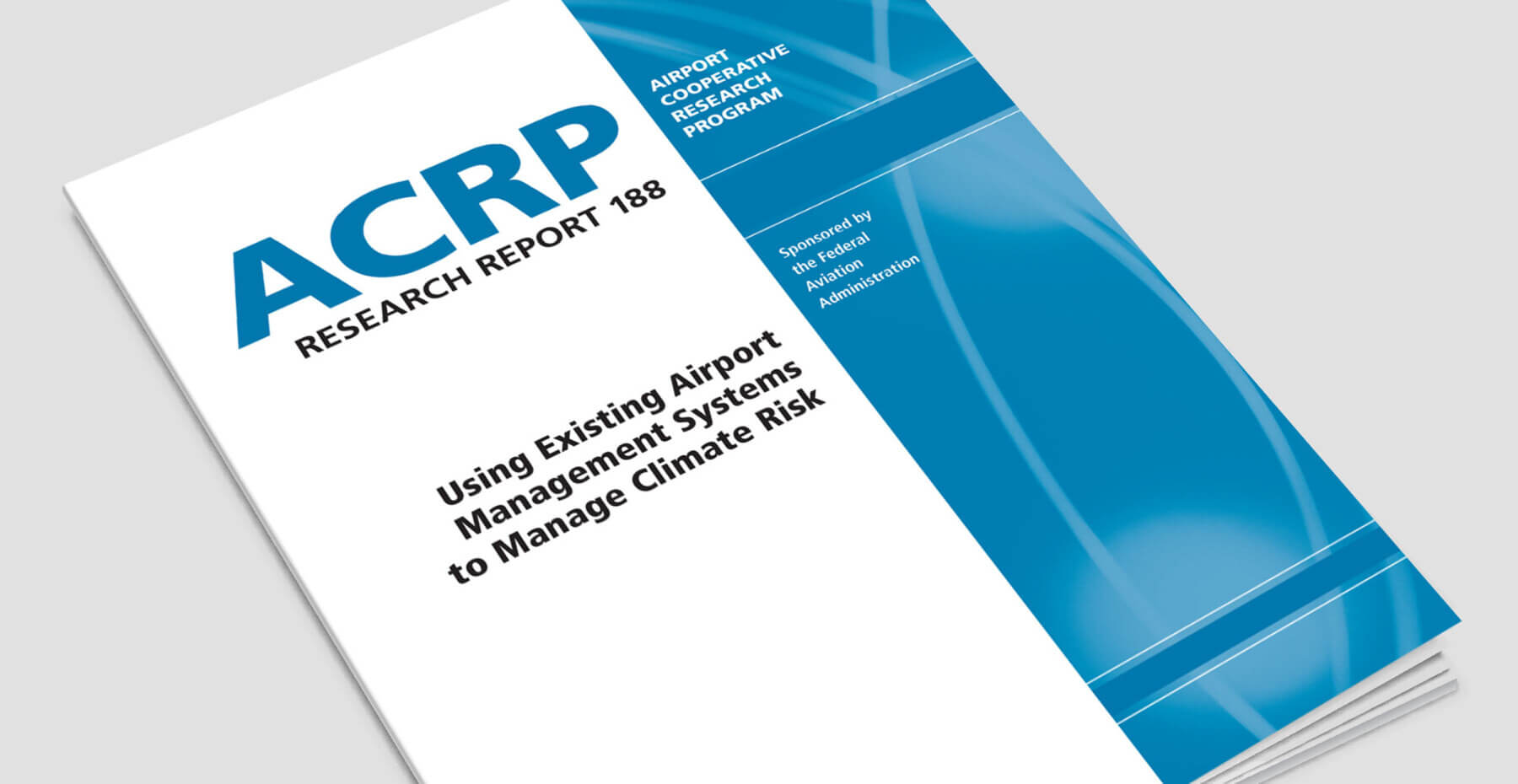
An Integrated Approach to Better Mitigate Risk
Rather than viewing climate risks as completely new and separate, it’s possible to incorporate these risks into existing decision-making processes. Every airport has one or more planning processes already in place, such as strategic planning, capital planning and/or emergency management, among others, which also provide a framework to assess and address risks from a changing climate. The guidance taps into the processes familiar to an airport and plugs in climate information for evaluation during a typical planning cycle. The integrated approach outlined in ACRP Report 188 helps airports to make informed decisions about investments that mitigates risks, provides a more holistic and long-term view and creates a pathway to spot synergies across departments and functional areas.

High Performance Planning Tools
ACRP Report 188 includes a self-assessment tool for determining the applicable systems for climate-related decision-making within the airport. It leverages the ACRP Report Climate Risk Operational Screening (ACROS) Tool, which Gresham Smith helped develop during a previous project, to gather airport-specific projections of climate hazards and associated infrastructure impacts. The handbook provides strategies for building stakeholder support across the airport. Short on time? It also features a 16-page quick start guide describing the main steps.
Industry Involvement
To maximize the utility of the handbook, we solicited feedback from airport stakeholders during a series of webinars and site visits. Representatives from the City of Phoenix Airport Department, the City and County of Denver, Atlanta Department of Aviation, Lee County Port Authority, Columbus Regional Airport Authority, Allegheny County Airport Authority, and Massachusetts Port Authority participated in webinars. We conducted site visits at Southwest Florida International Airport, Denver International Airport, Logan International Airport, Pittsburgh International Airport, and Seattle-Tacoma International Airport where we facilitated a walk-through of the guidance and we addressed their airport-specific climate risks in the proces
